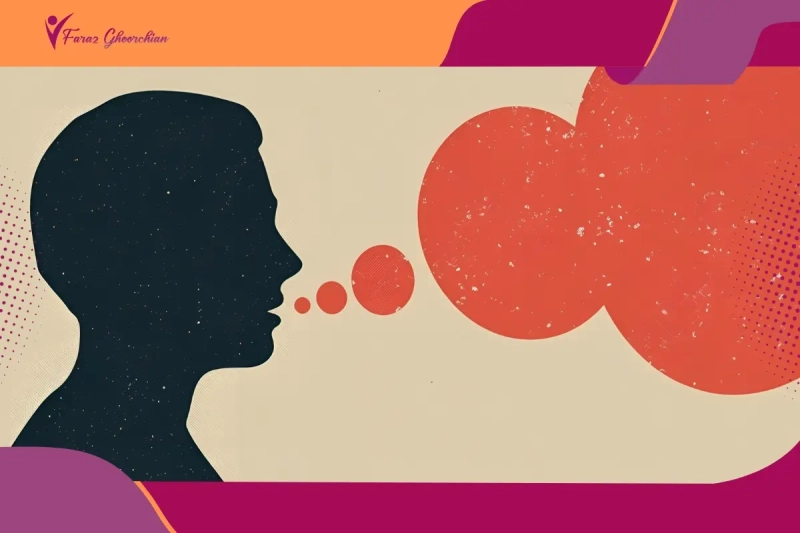- 1. Introduction: Why Quitting Masturbation Can Feel Stressful
- 2. Understanding the Cycle: Why Masturbation Becomes a Habit
- 3. Common Myths: Masturbation Side Effect vs. Real Science
- 4. How to Recognize Your Triggers and Patterns?
- 5. Mindfulness to Stop Masturbating: Tools for Emotional Regulation
- 6. Building Self-Control to Quit Masturbation Without Stress
- 7. Dealing with Urges Without Guilt or Shame
- 8. Resetting Your Dopamine: The Science of Masturbation Detox
- 9. Healthy Alternatives and Social Support: Nofap, Community, and Routine
- 10. Long-Term Benefits: Focus, Sleep, and Spiritual Clarity
- 11. Conclusion
-
12.
FAQs
- 12.1. 1- Is it possible to overcome masturbation addiction without stress?
- 12.2. 2- How do I break masturbation habits calmly?
- 12.3. 3- Does quitting masturbation improve focus and sleep?
- 12.4. 4- Can masturbation cause anxiety or affect relationships?
- 12.5. 5- What are healthy alternatives to masturbation?
- 12.6. 6- Is therapy a good option for compulsive masturbation?
Introduction: Why Quitting Masturbation Can Feel Stressful
If you’ve ever tried to figure out how to quit masturbation without psychological stress, you already know it’s not just about willpower. Breaking the routine can trigger unexpected emotions, from guilt to anxiety. For many, the habit becomes a way to manage stress or escape boredom. That’s why overcoming masturbation addiction without stress often means understanding both your mind and your habits, not just focusing on the physical urge.
Understanding the Cycle: Why Masturbation Becomes a Habit
For many, masturbation starts as a harmless way to relax or release tension, but over time it can turn into one of those bad habits that’s hard to break. When daily stress, social anxiety, or loneliness show up, it’s easy to turn to this routine for a quick mood boost. The brain gets used to the dopamine rush, making the urge feel automatic. That’s why people often spend more time than they realize on this pattern, leading to frustration or guilt. Noticing when you’re most likely to indulge is the first step toward overcoming the social anxiety and masturbation link and reclaiming your focus.
Common Myths: Masturbation Side Effect vs. Real Science
It’s easy to get confused by all the talk online about masturbation side effect stories, but not everything you hear is true. Separating myth from fact is crucial for your peace of mind:
- Most research shows that masturbation is not harmful in moderation for most people
- Claims about serious health risks or permanent damage are usually exaggerated
- Guilt and shame can actually cause more anxiety than the act itself
- Teenagers often worry unnecessarily about negative effects because of misinformation
If you want honest masturbation advice for teenagers or adults, trust credible science instead of rumors. Understanding what’s real can help reduce fear and make quitting feel much less stressful.
How to Recognize Your Triggers and Patterns?
Understanding your personal triggers is the foundation of quitting masturbation calmly. Most people don’t realize how automatic the urge can become until they pause and take a closer look. Start by noting when and where the urge is strongest. Is it late at night, after scrolling social media, or when you feel stressed or lonely? These patterns often reveal deeper routines behind your masturbation habits. Keeping a journal for a few days can highlight surprising connections, such as specific emotions or even certain places that lead to cravings. By paying attention to these small details and recognizing triggers to masturbate, you gain more control over your response. Recognizing triggers helps you avoid falling into old routines and supports how to break masturbation habits calmly, making the whole process less overwhelming and much more manageable.
Mindfulness to Stop Masturbating: Tools for Emotional Regulation
If you’re aiming to practice mindfulness to stop masturbating, you’re already one step closer to real change. Mindfulness techniques offer simple ways to manage stress, cravings, and emotional ups and downs. Here are proven strategies that help reduce masturbation and anxiety:
- Take three slow, deep breaths when you notice an urge and focus on the feeling without reacting
- Try “urge surfing,” where you observe the craving as a wave that rises and falls rather than something you have to act on
- Practice grounding exercises, like feeling your feet on the floor or touching something cool, to anchor yourself in the present moment
- Replace negative thoughts with a gentle reminder that dealing with urges without guilt is a skill you can build over time
With daily practice, these tools help break automatic cycles and create space for healthier choices, including sex benefits exercise as an alternative stress release.
Building Self-Control to Quit Masturbation Without Stress
Real self-control is less about forcing yourself to resist urges and more about building new routines that make healthy choices easier. If you want to know how to quit masturbation without psychological stress, try shifting your focus from what you’re avoiding to what you’re gaining. Start with small, daily changes. Swap out idle time with activities that require your attention, like cooking, reading, or calling a friend. Creating a simple masturbation detox routine also helps retrain your brain. For example, set up a nightly routine with calming music or meditation to wind down without temptation. You can also use “if-then” planning, such as, “If I feel the urge, then I’ll go for a walk or do ten push-ups.” Over time, these micro-habits add up, making self-control feel natural instead of stressful. Exploring the health benefits of sex in a safe, committed relationship can also reframe your approach to intimacy and wellness.
Dealing with Urges Without Guilt or Shame
Experiencing urges is normal and doesn’t mean you’re failing. The key to dealing with urges without guilt is changing the way you talk to yourself. Instead of harsh self-criticism, try a gentle, realistic approach: “This is just an urge, and I don’t have to act on it.” If you slip up, remind yourself that progress takes time. Practicing self-improvement through quitting masturbation works best when you treat every setback as a lesson, not a disaster. You might notice that feelings of shame can make the urge stronger, so it’s important to break this cycle. Consider opening up to someone you trust, or try writing down your thoughts when the urge hits. In many cases, bad habits affecting academic performance or mood come from negative thinking patterns, not the habit itself. When you approach each moment with self-compassion, it’s much easier to regain control and move forward.
Resetting Your Dopamine: The Science of Masturbation Detox
Taking a break from masturbation gives your brain a chance to reset its reward system. When you stop, dopamine levels gradually return to a more balanced state, which can help reduce cravings and impulsive behavior. This process is sometimes called a masturbation detox routine. At first, you might feel restless or notice your mood shifting, but this is a normal part of recovery. Finding new ways to reset dopamine levels naturally can speed up the process. Try adding daily exercise, like running or yoga, as sex benefits exercise is well known for supporting mental clarity. Getting regular sunlight, eating nutritious meals, and pursuing hobbies that genuinely interest you can also help. Over time, these changes not only make urges less intense but may improve your overall mood and focus. Many people also realize how much time wasted on masturbation can be redirected toward more fulfilling goals. You may even see a positive masturbation effect on relationships as you become more present and emotionally balanced.
Healthy Alternatives and Social Support: Nofap, Community, and Routine
Replacing old routines with healthy alternatives to masturbation can make a huge difference in your journey. When an urge comes up, try channeling that energy into something positive, like going for a run, learning an instrument, or starting a creative project. Getting active with sports or group classes not only keeps you busy but also boosts your mood through social interaction. The sense of belonging you get from joining a supportive group is powerful. If you feel isolated, consider connecting with a join nofap community for mental support. These groups offer encouragement, share real stories, and help you with staying motivated to quit masturbation on tough days. Many people find that building a structured daily routine, such as morning walks, scheduled meals, and planned downtime, makes a big difference in staying on track. This approach is especially helpful if you are looking for masturbation advice for teenagers or adults who want to feel less alone. Consistency and community turn small wins into long-term habits.
Long-Term Benefits: Focus, Sleep, and Spiritual Clarity
Sticking with the decision to quit can lead to surprising rewards. Many people report improved focus without masturbation, noticing sharper concentration at work or school. Even simple tasks start to feel easier. Another common benefit is better sleep after quitting masturbation. Without late-night urges or guilt, you may fall asleep faster and wake up feeling more refreshed. For some, stepping away from the habit opens the door to deeper self-reflection and quitting masturbation for spiritual clarity. This might show up as a renewed sense of purpose or feeling more present in daily life. Over time, these changes add up, making it easier to enjoy real connections and move past old routines. If you track your progress, you’ll likely see how much energy and time you’ve gained through quitting masturbation for good.
Conclusion
Learning how to quit masturbation without psychological stress is a personal process, not a one-size-fits-all journey. By focusing on self-awareness, healthy routines, and genuine support, you can overcome urges calmly and build stronger self-control. Remember, real change happens through patience and consistent effort. Whether your goal is self-improvement through quitting masturbation or simply reducing anxiety, every step forward counts. Celebrate your progress and do not be discouraged by setbacks. Over time, you will notice more energy, better focus, and a healthier mindset that comes from moving beyond old habits.
FAQs
1- Is it possible to overcome masturbation addiction without stress?
Yes, you can overcome masturbation addiction without stress by using mindfulness, building new routines, and focusing on self-care. Addressing triggers and practicing self-compassion make the journey smoother.
2- How do I break masturbation habits calmly?
Start by identifying when and why the urge appears. Replace the habit with healthy alternatives such as exercise or hobbies. Practicing mindfulness to stop masturbating can help manage cravings in the moment.
3- Does quitting masturbation improve focus and sleep?
Many people report improved focus without masturbation and say they experience better sleep after quitting masturbation. Less distraction often leads to better productivity and a calmer mind at night.
4- Can masturbation cause anxiety or affect relationships?
Compulsive habits can sometimes increase stress or create distance in relationships. Addressing the masturbation effect on relationships and anxiety can help restore balance in your social life.
5- What are healthy alternatives to masturbation?
Try engaging in sex benefits exercise, creative projects, or joining a nofap community for mental support. Social connection and physical activity are both great ways to redirect your energy.
6- Is therapy a good option for compulsive masturbation?
Yes, therapy options for compulsive masturbation can help if you feel out of control or notice bad habits interfering with your well-being. Talking to a professional provides structure and guidance tailored to your needs.

















